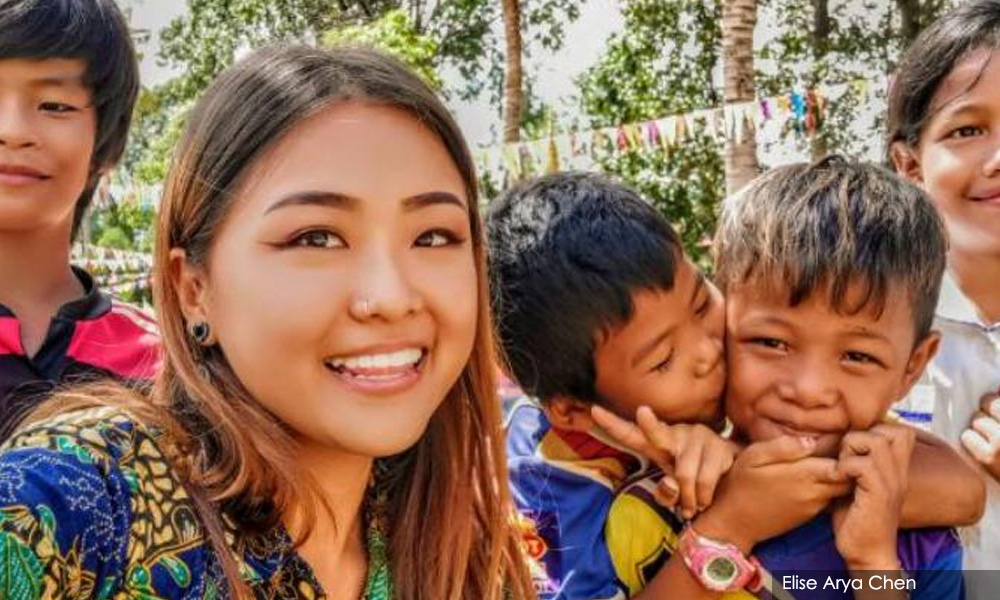MCA Beliawanis (Wanita MCA Young Women Bureau) chief Ivone Low Yi Wen has been roundly condemned for labelling refugee children “provocative, arrogant and ungrateful”.
Low made these remarks in response to a video circulating on social media showing children, believed to be refugees, knocking on car doors to demand money – saying that the children had behaved in this way despite the kind treatment of Malaysians.
Human rights activist Elise Arya Chen said that Low's proposal to track refugees and implement mechanisms for the public to "complain" about refugees only criminalises a marginalised community seeking safe refuge from war, conflict and persecution.

"Her call for a more assertive stance by the government fuels a narrative that refugees are generally troublemakers who are aggressive and provocative," said Chen, who described Low’s remarks as “infuriating”.
"There are bad apples in every community. We should not stoop so low as to generalise refugees as ungrateful and arrogant based on the actions of a few young children who have been compelled to beg on the streets, instead of having access to formal education.
"I only wish that Low and other Malaysians who are more inclined to believe this narrative, have the opportunity to meet and befriend some refugees, to realise that these bad apples do not represent the diverse and resilient community of refugees here.
"If a policy response to videos of a few beggar children being aggressive is to further demonise an entire community instead of addressing why children are not in schools, I fear that our moral compass is failing, thus staining our humanity," Chen told Malaysiakini.
Difficult times
Chen said that while we are facing difficult times, the way forward is not further division, scapegoating and exclusion.
"Treating refugees as a problem is the problem. Instead of pushing for emotionally-fuelled policies that are xenophobic and ‘indignifying’, we must focus on more holistic solutions based on thorough and impartial analyses of the entire situation," she added.
Low in her response had also said that the “aggressive behaviour” of the refugee children was worrying and called on the government to take action before Malaysians themselves “take matters into their own hands”.
Tenaganita executive director Glorene Das said that Malaysian social perspective towards refugees can be a problem, due in no small part to such attitudes.
"They often think refugees are charity cases, or that the UNHCR (United Nations High Commissioner for Refugees) and NGOs are supporting the refugees in terms of financial, why should they care about refugees when Malaysian have their own issues in the country."

However, she reminded Low that these are children we are talking about.
"They deserve the same dignity as Malaysian children have. If society believes in them, allow them to get proper education, it will come back to benefit us all as a country.
"We should be setting a great example internationally by giving children their rights. The Malaysian government should also come up with awareness programmes for society on how the refugee can contribute to the community and host country.
"Much of the local community seems unaware of the factors which create displacement and the significant population of refugees. Without understanding the realities and context, fear and hate against these communities are fuelled and stoked," she said.
Segambut MP Hannah Yeoh concurred, saying in a post on social media: “MCA, this is a horrible horrible thing to say about children. No child can control their legal status or determine their own race and no child deserves unkindness.
"Each child is wonderfully made by God. Illegitimate, stateless and refugee are terms made by men," she said.
‘Don’t blame children’
The UNHCR in a response to the video said that based on insights from refugee communities themselves, it is only a very small percentage of refugees who have been forced to resort to begging in order to make ends meet.
"It is an indicator of the desperation of a family to allow their children to go out and beg.
"If refugee parents are able to work legally and are able to support their families, and if refugee children are able to attend formal schooling, the chances of children being in exploitative conditions are reduced.
“Children should be in school, not on the streets begging," said the UNHCR.
On Wednesday, Pengerang MP Azalina Othman Said addressed the same video but held a completely different viewpoint from Low.
Azalina claimed that the children should not be blamed for their actions as the country failed to prevent them from being used as beggars.
She also pointed out that Section 32 of the Child Act provides a fine of up to RM5,000 or up to two years' imprisonment or both for anyone who uses children for begging or illegal activities.
The same punishment is provided under Section 33 of the Act for leaving children without reasonable supervision. - Mkini



No comments:
Post a Comment
Note: Only a member of this blog may post a comment.